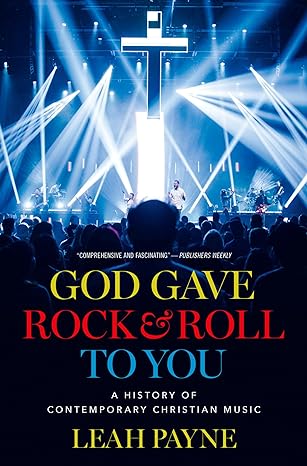(Mostly) Well Documented History Of the Entire History of 'Contemporary Christian Music' As The Term Was Known Through The Late 20th And Early 21st Centuries.
For those of us who grew up with 'CCM', this is actually a refreshing history that traces the roots of the music from its earliest days in 19th century songbooks through the early days of rock and roll through the heights of the late 80s- early 2000s boom and all the way to the seeming life support bed the genre currently finds itself on. Along the way, you're going to hear tales of names both familiar and not and how they shaped or played a role in the genre and how it has been presented.
One thing to note is that the author *does* have a particular "it was always racist" bent to much of her commentary, so your mileage may vary there. But at 18% documentation, it is close enough to expected to classify as (mostly) well documented. (20-30%+ has been more of the actual norm in my experience, but I've noted in other reviews over the last several months that perhaps I should be revising that down to perhaps around 15% or so given more recent experience.)
This noted, I've never encountered a book quite so comprehensive in all my years both within the CCM community and as a book blogger, including having even worked books from Jaci Velasquez and Mark Stuart (lead singer of Audio Adrenaline) as advanced reader copies over the course of the last few years + read Jennifer Knapp's memoir just before that. Thus, having never come across any book quite like this one, given my own experiences, means it truly is quite likely quite rare indeed. That it is (mostly, again, see the YMMV comment above) so well written is almost a bonus given its comprehensive analysis of the history involved.
Ultimately this is one that some may want to defenestrate at times, but still absolutely a worthy read for anyone remotely interested in the subject. Very much recommended.
